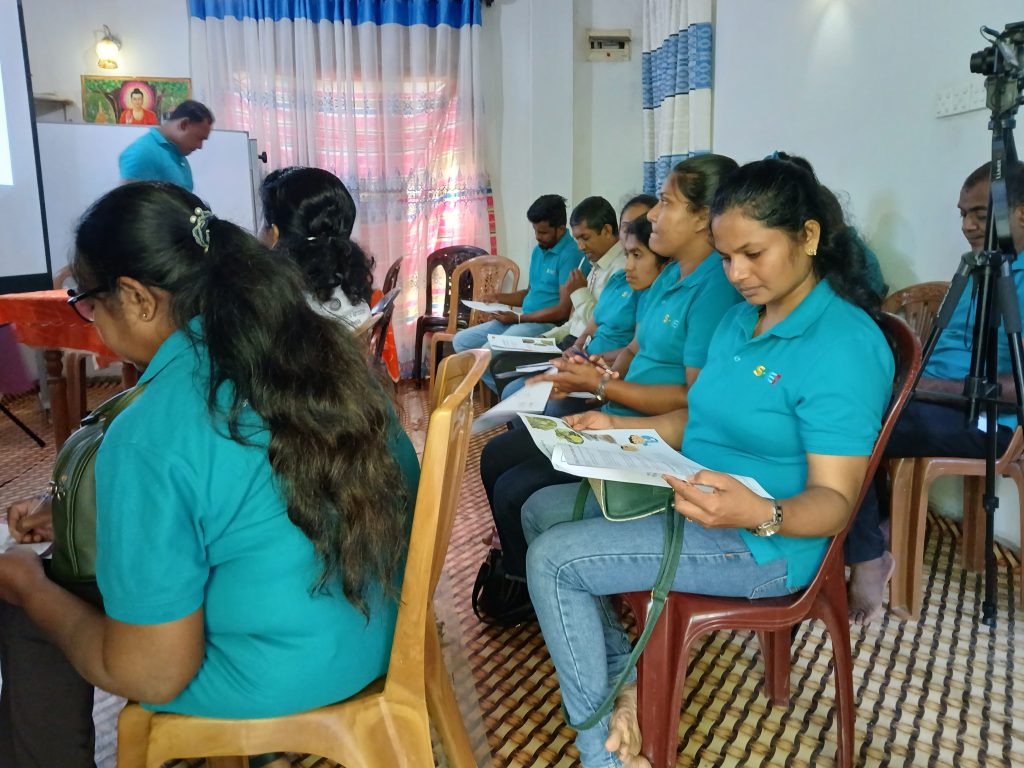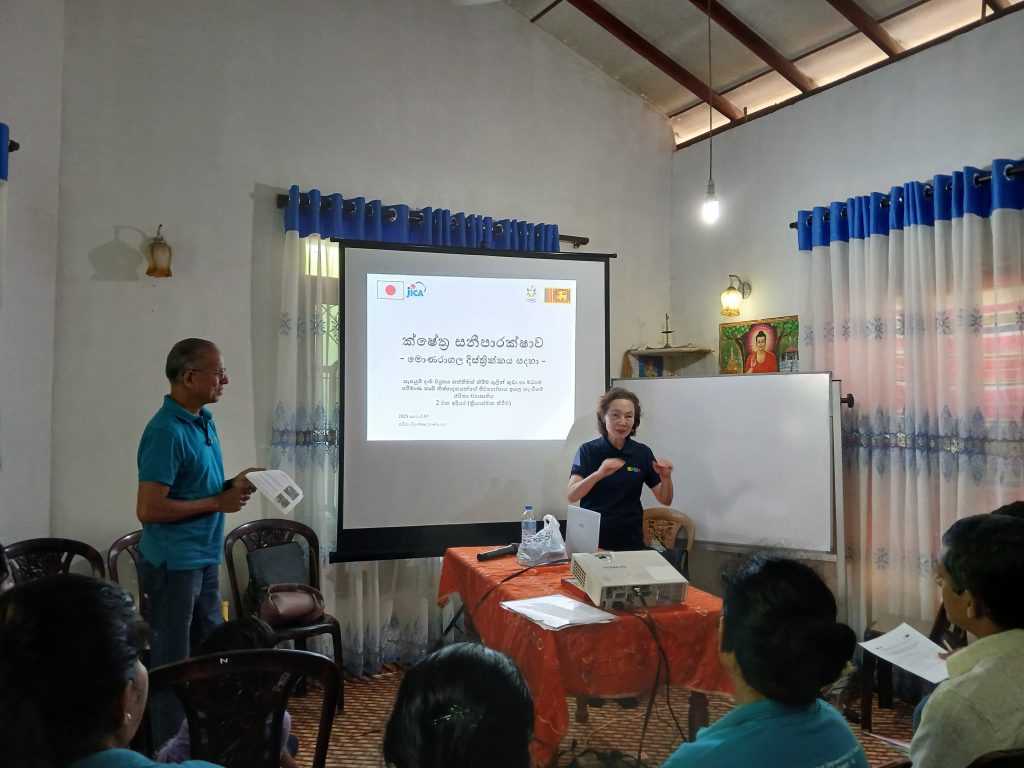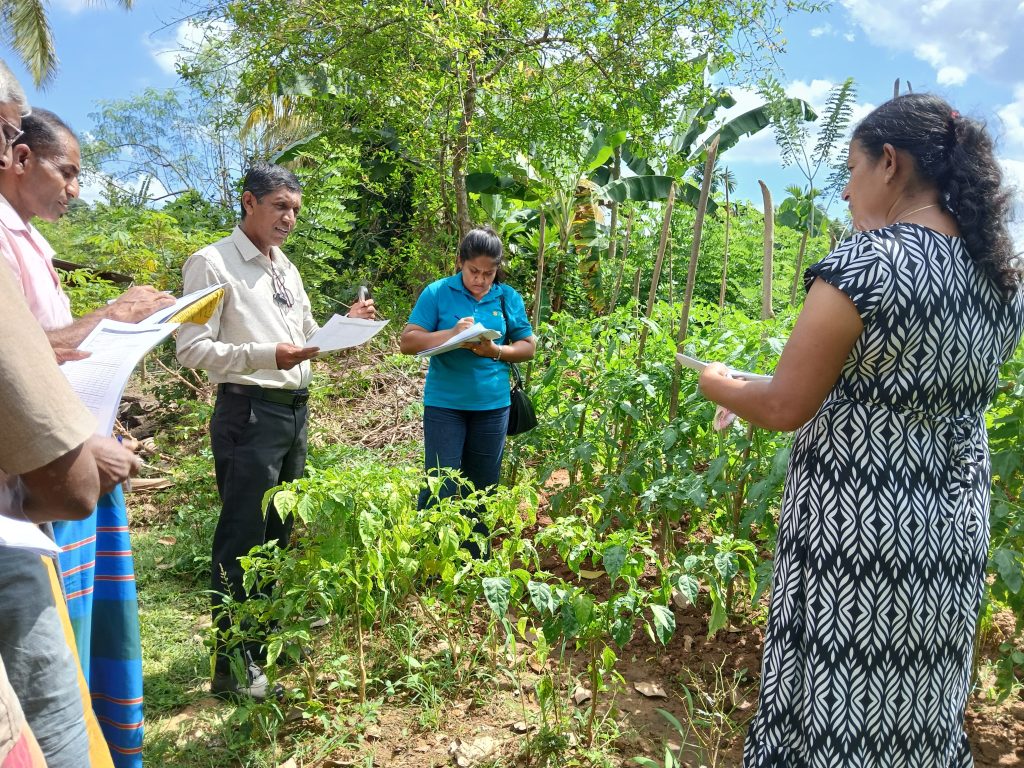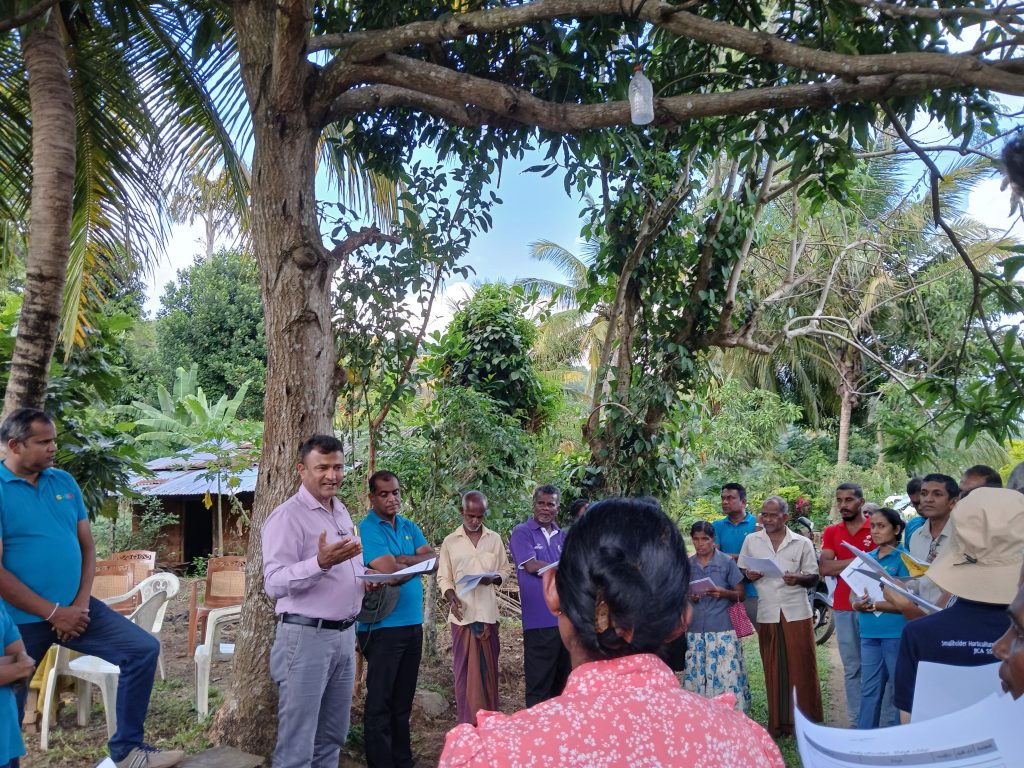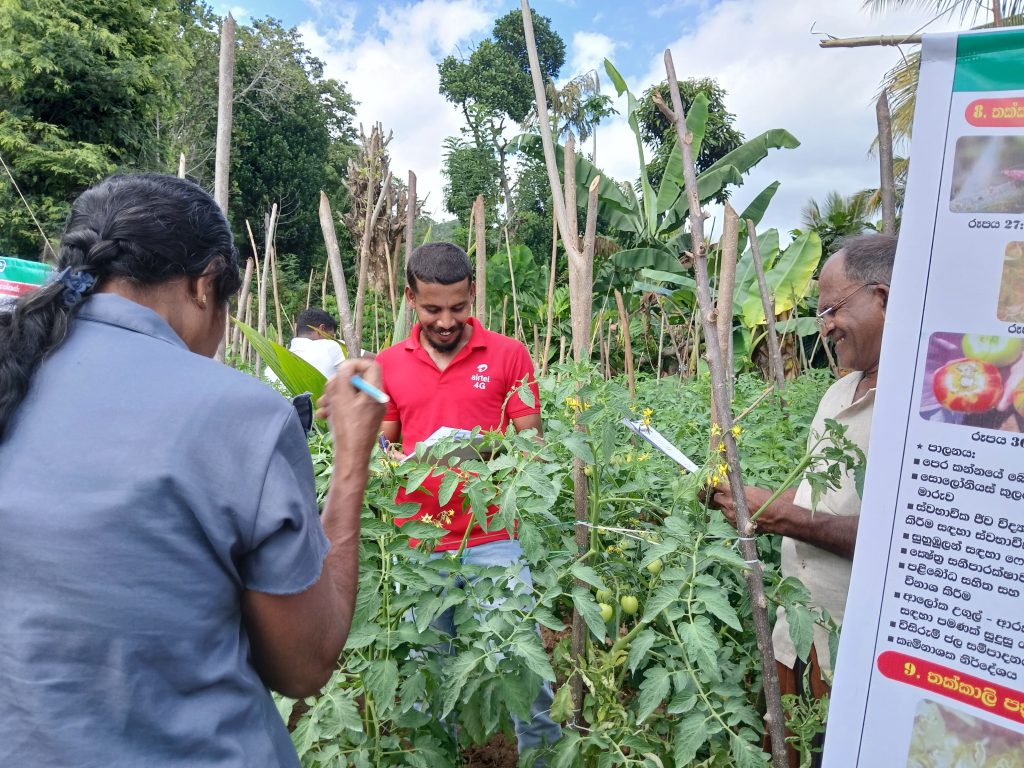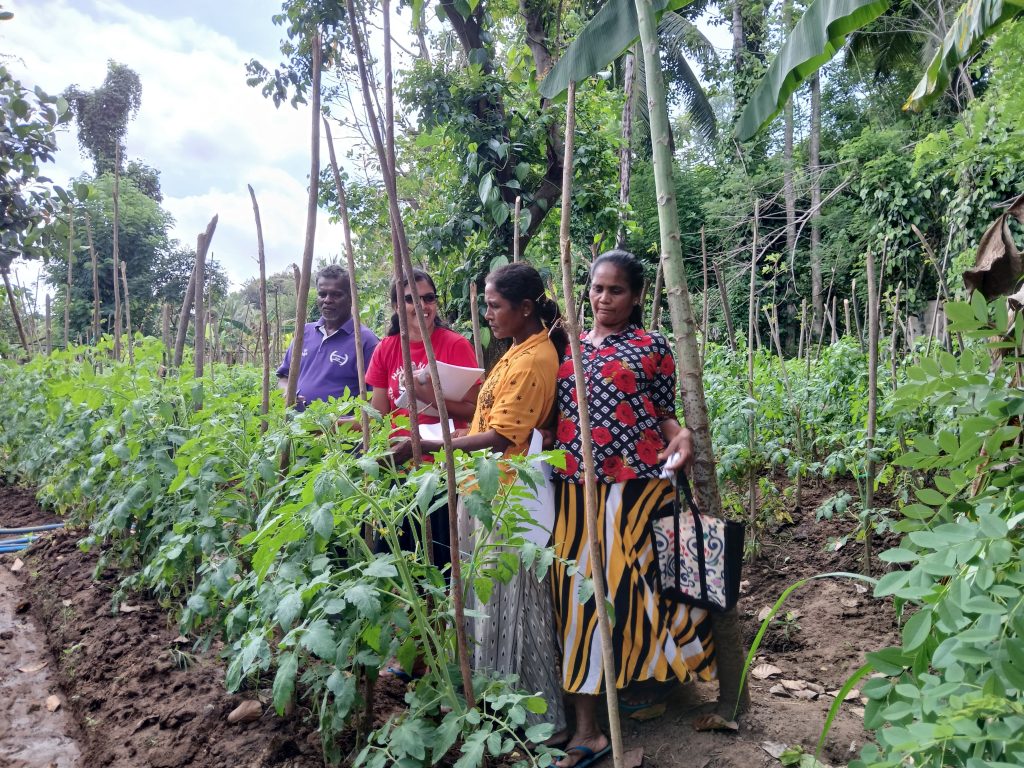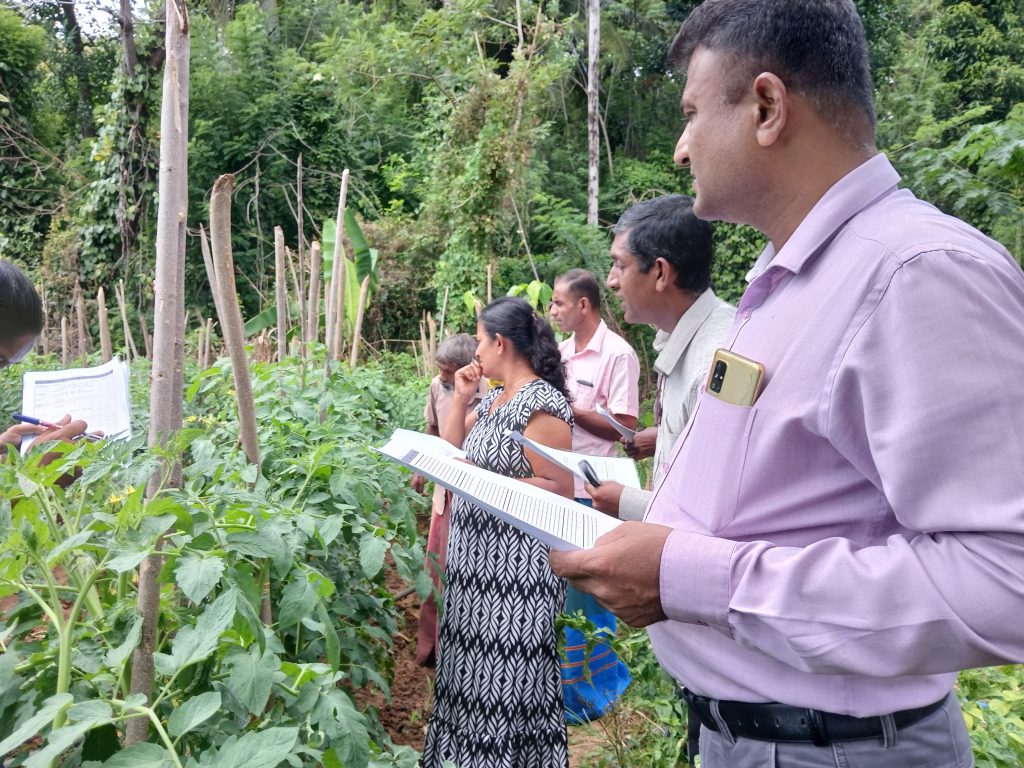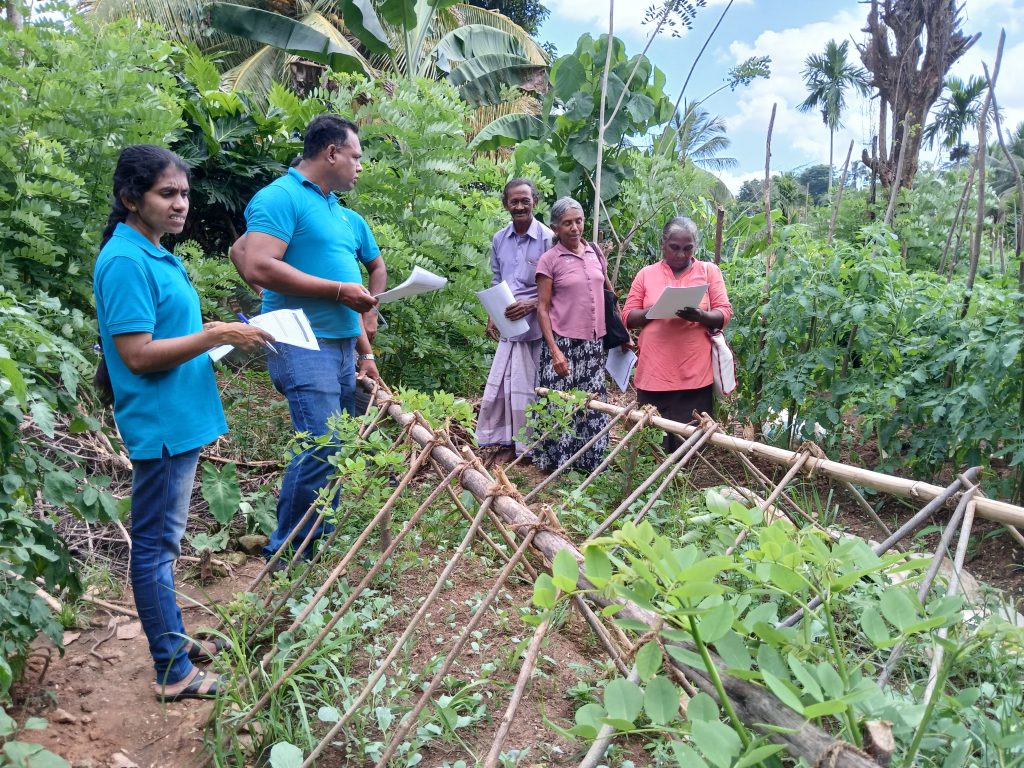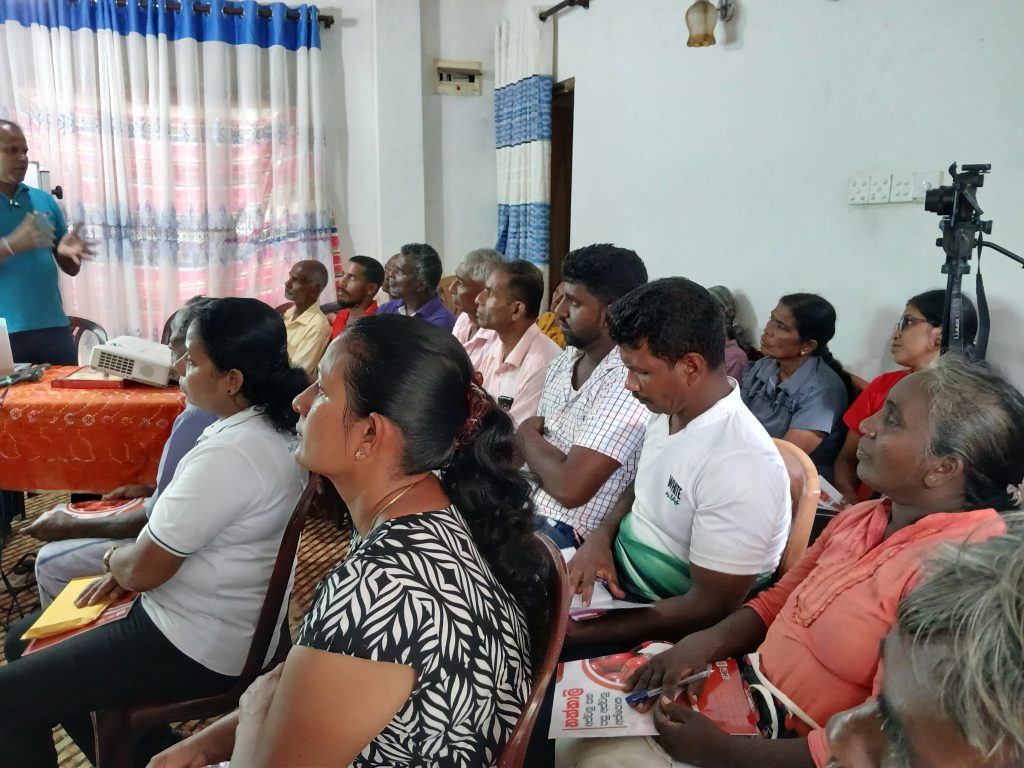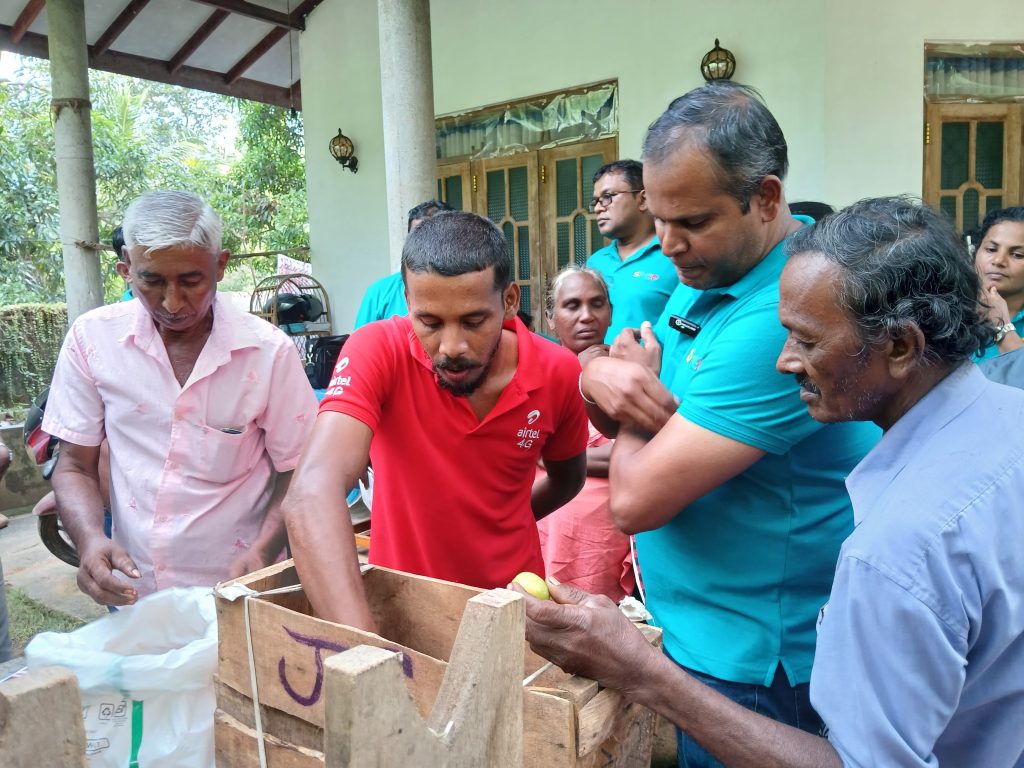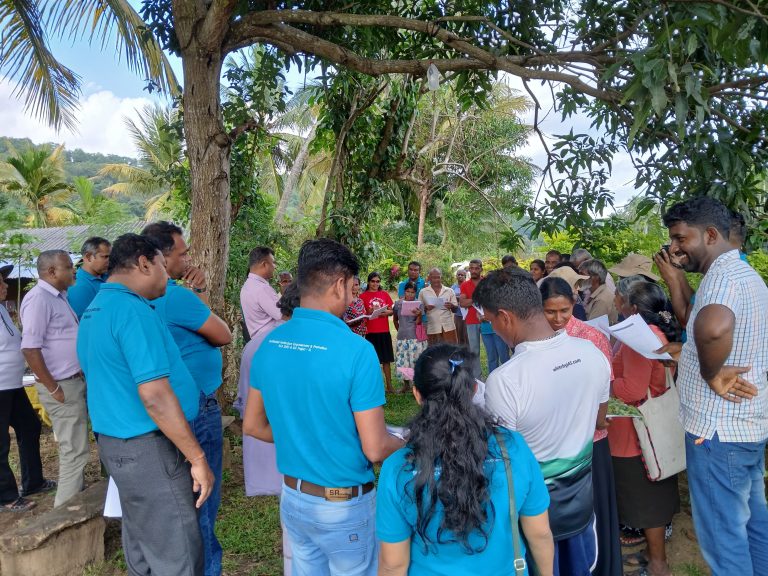A comprehensive training program on field hygiene and post-harvest management of tomatoes was recently conducted for all field officers and farmers from selected farmer groups in each target district. This initiative aimed to equip field officers with the knowledge and skills required to improve field hygiene practices and ensure better crop health and yield. The training addressed both district-specific issues and general guidelines, focusing on key aspects of field hygiene and post-harvest handling of tomato.
The training emphasized the importance of maintaining high standards of field hygiene to prevent pest and disease outbreaks. Practices such as mixed planting with companion plants, pruning, and training methods were highlighted as essential field management techniques for different crops. These practices were tailored to specific crops, with tomatoes receiving special attention. The training covered essential hygiene measures such as personal hygiene, soil sanitation, water hygiene, the use of disease-free seeds and seedlings, the removal of infected plants, equipment sanitation, and regular monitoring of the surroundings.
Ms. Yoko Nagata, a horticultural crop production expert from the JICA expert team, led the field hygiene training. Her expertise and insights were instrumental in enhancing the understanding of field officers and farmers. As part of the program, field officers conducted group training sessions for farmers, using a checklist to evaluate field hygiene standards. Farmers actively participated, practicing the recommended hygiene measures under the guidance of the field officers. This hands-on approach enabled farmers to identify overlooked but critical aspects of field hygiene. Many farmers realized the importance of seemingly minor practices and their significant impact on protecting crops from pests and diseases.
The training also featured a session on post-harvest management of tomatoes, led by Dr. Ashoka from the Food Research Unit, Gannoruwa. This session provided valuable insights into the correct stage, time, and methods for harvesting tomatoes. It also covered cleaning, sorting, grading, packing, and transportation techniques to ensure that tomatoes reach the market in optimal condition. A practical demonstration on packing tomatoes using plastic crates allowed farmers to correct mistakes and adopt more efficient practices.
The training served as a platform for knowledge exchange and skill development, empowering field officers and farmers alike. Farmers appreciated the opportunity to learn from experts and improve their practices, ultimately contributing to better yield and reduced losses. This initiative underscores the importance of continuous education and collaboration in achieving sustainable agricultural development.
In conclusion, the training on field hygiene and post-harvest management of tomatoes was a significant step towards enhancing agricultural practices in the target districts. By addressing key issues and providing practical solutions, it has paved the way for healthier crops, better yields, and more efficient market delivery. The collaborative efforts of the JICA expert team, field officers, and farmers highlight the potential for positive change through knowledge-sharing and capacity building.
